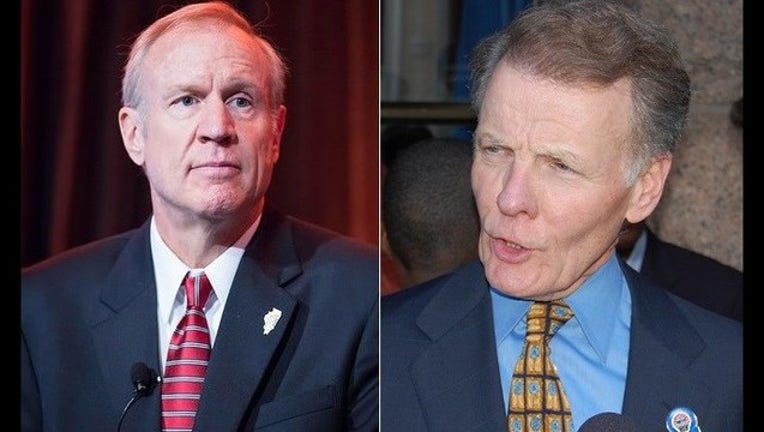Democrats push for overhaul of Illinois education funding

Photo Sources: Metropolitan Planning Council (MPC) / Flickr --- WBEZ / Flickr
SPRINGFIELD, Ill. (AP) - Illinois Democrats are attempting to overhaul public schools funding for the first time since 1997 with a plan that would gradually shift money from wealthy districts to poorer areas in an effort to ensure the amount of money spent on education across the state is more equitable.
Schools have largely been spared the consequences of the state operating without a budget since July 1, thanks to Republican Gov. Bruce Rauner signing a spending plan for education while vetoing the rest of the funding package.
Here are some of the ways school funding would change under a proposal introduced Wednesday by Democratic Sen. Andy Manar:
___
REASONS TO REVAMP
A 2015 study from The Education Trust, a nonpartisan advocacy group, found Illinois has the most unfair school funding system in the nation, with poor students receiving nearly 20 percent fewer state and local dollars than their wealthier peers.
During the past 20 years, the gap between poor and wealthy schools has only grown.
Part of the challenge is that state education funding is comprised of a variety of grants, many of which don't account for resources some districts already have, so a property-tax rich district may get large grants from the state even though poorer districts may be more in need.
___
THE PROPOSED CHANGES
Under state law, districts are supposed to get a minimum amount of state money per student, though they haven't been receiving that full amount in recent years because of the budget crisis. On top of that money, some districts get additional funds for other things, such as transportation and for serving high numbers of low-income students, and make up the rest with property taxes.
Manar's bill would change districts' reliance on property taxes, taking local wealth more into account when distributing funds. Advocates for change say the poorer districts don't have the property tax base to supplement funding like wealthier districts such as those in Chicago's suburbs.
"Everything in this bill is intended to take steps toward parity toward a system that is statewide in nature," he said.
The bill would require an initial $400 million investment on top of the $10 billion education budget to make sure that wealthier school districts don't lose money the first year — a move intended to ease concerns from suburban lawmakers. After the first year, the funding shift toward needier school districts would be phased in over four years.
___
WHAT ABOUT CHICAGO?
The financially struggling Chicago Public Schools would see changes, too.
Instead of the doling out the annual grant that CPS receives, the state would cover pension contributions for Chicago teachers. CPS is the only Illinois district where local taxpayers, rather than the state, pay the employer's contribution.
Mayor Rahm Emanuel has long argued the city's funding system is unfair because it means Chicago taxpayers get hit for pensions twice: Once when they pay state taxes that help fund pensions for teachers outside Chicago, and again when they pay for the city's teacher pensions.
Senate President John Cullerton has said the changes could provide about $300 million more annually to CPS, though his spokesman cautioned that number is preliminary because the Illinois State Board of Education has not yet calculated how much districts would receive.
___
RAUNER'S STANCE
He urged lawmakers to make education funding a priority during his February budget address and asked for a "clean" bill for him to sign — a comment that highlights his anxiety that Democrats who control the Legislature won't pass an education bill unless it includes reforms. That could prompt another budgetary standoff, with devastating results for schools come the 2016-2017 school year.
"I don't think the current system works well and I support changing it," Rauner said Tuesday. But, he added that lawmakers shouldn't hold up funding for schools if the formula is not changed.
"We should not hold school funding hostage on this issue," he said.
___
Associated Press writer Sara Burnett in Chicago contributed to this report.

